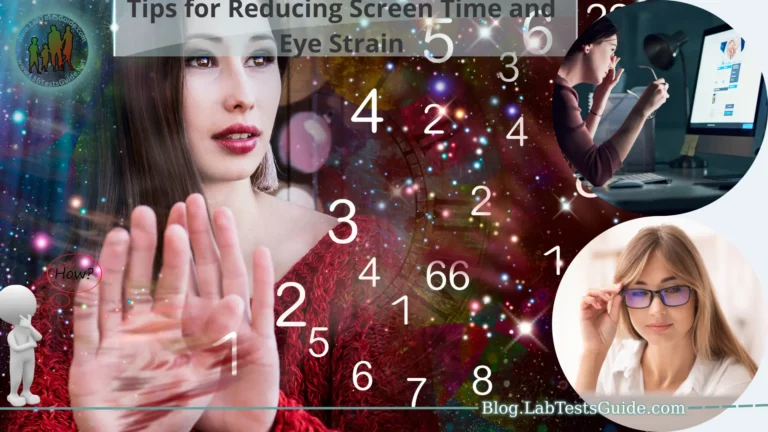Having a youthful complexion is often associated with beauty, vitality, and overall well-being. A youthful complexion is characterized by smooth, radiant, and firm skin, with minimal signs of aging such as wrinkles, fine lines, and age spots. While aging is a natural process, there are several steps you can take to achieve and maintain a youthful appearance.

In this guide, we will explore the various factors that contribute to skin aging, both intrinsic and extrinsic. We will delve into a comprehensive skincare routine that can help you achieve a youthful complexion, including cleansing, exfoliation, moisturization, sun protection, and facial massage techniques. Additionally, we will discuss key ingredients that are beneficial for youthful skin, such as retinoids, vitamin C, hyaluronic acid, peptides, and antioxidants.
How to understanding skin aging:
Here are some key points to help you understand skin aging.
Intrinsic Aging:
- Intrinsic aging is the natural aging process that occurs over time and is influenced by genetic factors and hormones.
- It leads to a gradual decrease in collagen and elastin production, resulting in loss of skin elasticity and firmness.
- The skin’s ability to retain moisture diminishes, leading to dryness and an increased propensity for wrinkles.
- Cell turnover slows down, causing a dull and uneven skin tone.
- Intrinsic aging is inevitable and cannot be completely prevented, but its effects can be minimized.
Extrinsic Aging:
- Extrinsic aging is caused by external factors that accelerate the aging process.
- Sun exposure is one of the primary causes of extrinsic aging. UV radiation damages collagen and elastin fibers, leading to wrinkles, age spots, and uneven pigmentation.
- Environmental factors, such as pollution and harsh weather conditions, can contribute to premature aging and skin damage.
- Unhealthy lifestyle habits, including smoking, excessive alcohol consumption, poor diet, inadequate sleep, and chronic stress, can accelerate the aging process and impair skin health.
- Repetitive facial expressions and movements can cause the formation of fine lines and wrinkles over time.
Prevention and Treatment:
- Protecting your skin from the sun is crucial in preventing premature aging. Use broad-spectrum sunscreen, wear protective clothing, and seek shade when the sun is strongest.
- Adopt a comprehensive skincare routine that includes cleansing, exfoliation, moisturization, and sun protection.
- Look for skincare products containing key ingredients that promote youthful skin, such as retinoids, vitamin C, hyaluronic acid, peptides, and antioxidants.
- Maintain a healthy lifestyle by following a balanced diet, staying hydrated, getting regular exercise, prioritizing quality sleep, managing stress, and avoiding smoking and excessive alcohol consumption.
- Consider professional treatments like chemical peels, microdermabrasion, laser therapy, dermal fillers, and botulinum toxin injections to address specific aging concerns.
Use makeup techniques that enhance a youthful appearance, such as choosing the right foundation, using highlighters and contouring to add dimension, and emphasizing the eyes and lips.
By understanding the factors contributing to skin aging and implementing appropriate preventive measures and treatments, you can proactively maintain a youthful complexion and promote healthy skin as you age.
Skincare Routine for a Youthful Complexion:
Here are key steps to include in your skincare routine.
Cleansing:
- Cleanse your face twice daily, morning and evening, to remove dirt, oil, and impurities that can clog pores and contribute to skin aging.
- Use a gentle cleanser that suits your skin type. Avoid harsh soaps or cleansers that strip the skin of its natural oils.
- Massage the cleanser onto damp skin in circular motions, then rinse thoroughly with lukewarm water.
Exfoliation:
- Exfoliate your skin 1-2 times a week to remove dead skin cells, improve skin texture, and promote cell turnover.
- Choose a gentle exfoliant that suits your skin type, such as a chemical exfoliant containing alpha hydroxy acids (AHAs) or beta hydroxy acids (BHAs).
- Apply the exfoliant to clean, damp skin and gently massage in circular motions. Rinse thoroughly with water.
Moisturization:
- Hydrate your skin with a moisturizer suitable for your skin type, morning and evening.
- Look for moisturizers that contain hydrating ingredients like hyaluronic acid and ceramides to replenish moisture and improve skin elasticity.
- Apply the moisturizer to clean skin using gentle upward motions, focusing on areas prone to dryness and wrinkles.
Sun Protection:
- Apply sunscreen with a broad-spectrum SPF of 30 or higher every day, even on cloudy days.
- Choose a sunscreen that protects against both UVA and UVB rays.
- Apply sunscreen generously to all exposed areas of the skin and reapply every 2 hours, or more frequently if sweating or swimming.
Facial Massage:
- Incorporate facial massage into your skincare routine to stimulate blood circulation, promote lymphatic drainage, and improve skin tone.
- Use clean hands or a facial massage tool to gently massage the skin in upward and outward motions.
- You can also follow specific facial massage techniques or use facial oils to enhance the massage experience and nourish the skin.
Remember, consistency is key in any skincare routine. Be patient, as it may take time to see noticeable results. Additionally, it’s important to tailor your skincare routine to your specific skin type and concerns. Consulting with a dermatologist or skincare professional can provide personalized guidance and recommendations.
Key Ingredients for Youthful Skin:
Here are some key ingredients to look for.
Retinoids:
- Retinoids, derivatives of vitamin A, are powerful anti-aging ingredients that help reduce the appearance of wrinkles, fine lines, and age spots.
- They promote collagen production, improve skin texture, and enhance skin cell turnover.
- Look for over-the-counter retinol products or prescription-strength retinoids like tretinoin, adapalene, or tazarotene. Start with a lower concentration and gradually increase as tolerated.
Vitamin C:
- Vitamin C is a potent antioxidant that helps neutralize free radicals, which contribute to skin aging.
- It promotes collagen synthesis, brightens the skin, and improves uneven skin tone.
- Look for serums or creams containing stabilized vitamin C (ascorbic acid) for optimal effectiveness.
Hyaluronic Acid:
- Hyaluronic acid is a hydrating ingredient that attracts and retains moisture in the skin, improving hydration and plumping the skin.
- It helps reduce the appearance of fine lines and wrinkles and enhances skin firmness.
- Look for serums or moisturizers with hyaluronic acid to boost hydration.
Peptides:
- Peptides are amino acid chains that help stimulate collagen production and improve skin elasticity.
- They can help reduce the appearance of wrinkles and promote a firmer, smoother complexion.
- Look for products that contain peptides like palmitoyl oligopeptide or palmitoyl pentapeptide.
Antioxidants:
- Antioxidants, such as vitamins C and E, green tea extract, and resveratrol, protect the skin from oxidative stress and environmental damage.
- They help neutralize free radicals, reduce inflammation, and promote a youthful complexion.
- Look for antioxidant-rich serums or moisturizers to incorporate into your skincare routine.
It’s important to note that while these ingredients have proven benefits, individual results may vary. Additionally, it’s essential to introduce new ingredients gradually and perform a patch test to check for any potential allergies or sensitivities.
Healthy Lifestyle Habits for Youthful Skin:
Here are some key habits to incorporate into your daily life.
Balanced Diet and Hydration:
- Follow a balanced diet rich in fruits, vegetables, whole grains, lean proteins, and healthy fats.
- Consume foods high in antioxidants, such as berries, leafy greens, and nuts, to help protect the skin from oxidative damage.
- Stay hydrated by drinking an adequate amount of water throughout the day. Hydration is essential for maintaining skin elasticity and promoting a plump appearance.
Regular Exercise:
- Engage in regular physical activity to promote healthy blood circulation, which delivers oxygen and nutrients to the skin.
- Exercise helps reduce stress levels, which can positively impact the skin’s overall appearance.
Adequate Sleep:
- Get sufficient sleep, aiming for 7-8 hours each night. During sleep, the body repairs and rejuvenates the skin.
- Poor sleep quality or insufficient sleep can contribute to dull skin, fine lines, and uneven skin tone.
Stress Management:
- Practice stress management techniques such as meditation, deep breathing exercises, yoga, or engaging in activities you enjoy.
- Chronic stress can contribute to premature aging, inflammation, and skin problems.
Avoidance of Smoking and Excessive Alcohol Consumption:
- Smoking accelerates skin aging by damaging collagen and restricting blood flow to the skin.
- Excessive alcohol consumption can dehydrate the skin and lead to inflammation and skin damage.
- By incorporating these healthy habits into your lifestyle, you can support your skincare routine and promote a youthful complexion from the inside out.
In the next sections, we will explore professional treatments that can further enhance your efforts in achieving and maintaining a youthful appearance, as well as makeup tips for a youthful look.
Professional Treatments for Youthful Skin:
Here are some popular professional treatments for achieving a youthful complexion.
- Chemical Peels: Chemical peels involve the application of a chemical solution to exfoliate the outer layer of the skin, promoting cell turnover and revealing smoother, more youthful skin. They can improve skin texture, reduce the appearance of fine lines, wrinkles, and age spots, and enhance overall skin radiance.
- Microdermabrasion: Microdermabrasion is a non-invasive procedure that uses tiny crystals or a diamond-tipped wand to exfoliate the skin’s surface. It helps remove dead skin cells, stimulate collagen production, and improve skin texture and tone. Microdermabrasion is particularly effective for reducing the appearance of fine lines, shallow scars, and sun damage.
- Laser Therapy: Laser treatments utilize targeted beams of light to address specific skin concerns.
- Fractional laser resurfacing can stimulate collagen production, improve skin tone and texture, and reduce the appearance of wrinkles, scars, and age spots. Intense Pulsed Light (IPL) therapy targets pigmentation issues like sunspots and vascular conditions, promoting a more even skin tone.
- Dermal Fillers: Dermal fillers are injectable substances that restore volume and fullness to areas of the face that have lost volume due to aging. They can plump up wrinkles, fine lines, and hollow areas, giving a smoother and more youthful appearance. Common fillers include hyaluronic acid-based fillers like Juvederm and Restylane.
- Botox and Dysport: Botox and Dysport are injectables that temporarily relax facial muscles, reducing the appearance of dynamic wrinkles such as frown lines and crow’s feet. They can smooth out wrinkles and prevent the formation of deeper lines. These treatments are commonly used in the upper face area, including the forehead and around the eyes.
It’s important to consult with a qualified dermatologist or aesthetic professional to determine the most suitable professional treatment for your specific needs and concerns. They can assess your skin condition and recommend the appropriate treatment options for achieving a more youthful complexion.
Makeup Tips for a Youthful Look:
Here are some makeup tips to help you achieve a more youthful look.
- Foundation and Concealer: Choose a lightweight, dewy-finish foundation that provides natural coverage. Avoid heavy, matte formulas that can settle into fine lines and wrinkles. Use a concealer to cover any dark circles, blemishes, or areas of discoloration. Opt for a creamy, hydrating formula that blends seamlessly into the skin.
- Highlighting and Contouring: Use a subtle highlighter on the high points of your face, such as the cheekbones, brow bone, and cupid’s bow, to add a youthful glow and create dimension. Contour lightly using a matte bronzer or contour powder to define your features. Focus on the hollows of the cheeks, temples, and jawline for a more sculpted appearance.
Eye and Lip Makeup:
- Brighten the eyes by using light, shimmery eyeshadows and avoiding heavy, dark shades that can make the eyes look smaller.
- Apply mascara to lift and lengthen your lashes, making your eyes appear more open and youthful.
- Choose lip colors that are fresh and vibrant, such as pinks, corals, or soft nudes. Avoid dark or matte lipsticks that can make the lips look thinner.
- Soft and Blended Blush: Apply a natural-looking blush to the apples of your cheeks to add a youthful flush of color. Opt for peachy or rosy shades and blend well for a seamless finish.
- Light and Natural Brows: Groom your eyebrows by filling in any sparse areas with a brow pencil or powder using light, feathery strokes.
Aim for a natural-looking shape and avoid harsh or overly defined brows, as softer brows can contribute to a more youthful appearance.
Remember, the goal of makeup is to enhance your natural features. Less is often more when it comes to creating a youthful look, so focus on enhancing your skin’s natural radiance and using makeup techniques that promote a fresh and vibrant appearance.
In the final section, we will provide additional tips to help you maintain a youthful complexion.
Additional Tips for a Youthful Complexion:
here are some additional tips to help you maintain a youthful complexion.
- Proper Sleep Position: Sleep on your back whenever possible to avoid creating creases and wrinkles on your face from the pressure of pillow contact.
- Avoidance of Harsh Environmental Factors: Protect your skin from harsh environmental factors such as extreme cold or hot temperatures, wind, and pollution. Wear appropriate clothing, including hats and scarves, to shield your skin from harsh weather conditions.
- Regular Skincare Routine Evaluation: Regularly assess your skincare routine and make adjustments as needed. As your skin changes over time, it’s important to modify your routine to address specific concerns and maintain optimal results.
- Hygiene and Avoidance of Touching: Keep your hands clean and avoid touching your face frequently to minimize the transfer of dirt, bacteria, and oils. Touching your face excessively can contribute to breakouts and the spread of germs, which can lead to skin irritation and inflammation. Stress Reduction Techniques: Find effective stress reduction techniques that work for you, such as practicing mindfulness, engaging in hobbies, or seeking support from friends and family. Chronic stress can negatively impact your skin’s health and contribute to premature aging.
- Regular Skin Examinations: Stay vigilant about your skin’s health by performing regular self-examinations. Monitor any changes in moles, freckles, or skin lesions and consult a dermatologist if you notice anything suspicious or concerning.
Remember that achieving and maintaining a youthful complexion is a long-term commitment. It requires a combination of good skincare practices, healthy lifestyle habits, and making informed choices about professional treatments when necessary. Embrace a holistic approach to skincare, and be patient and consistent in your efforts to promote a youthful and radiant complexion.
FAQs:
What is the best skincare routine for a youthful complexion?
A skincare routine for a youthful complexion typically includes cleansing, exfoliation, moisturization, sun protection, and regular use of key ingredients like retinoids, vitamin C, and hyaluronic acid. It’s important to customize your routine based on your skin type and concerns.
Can diet affect my skin’s youthfulness?
Yes, a balanced diet rich in fruits, vegetables, whole grains, lean proteins, and healthy fats can support skin health and contribute to a youthful complexion. Antioxidant-rich foods, hydration, and avoiding excessive sugar and processed foods are beneficial for the skin.
Are professional treatments necessary for achieving a youthful complexion?
While not necessary, professional treatments like chemical peels, microdermabrasion, laser therapy, dermal fillers, and Botox can provide targeted solutions to enhance and rejuvenate the skin. Consult with a dermatologist or skincare professional to determine if they are suitable for you.
How long does it take to see results in achieving a youthful complexion?
Results vary depending on individual factors, such as skin condition, treatment options, and consistency in skincare routine. It may take several weeks to months to notice significant improvements in skin texture, tone, and youthfulness.
Can makeup help me achieve a youthful look?
Yes, makeup can enhance your features and create a more youthful appearance. Using lightweight, dewy foundation, subtle highlighting, natural-looking blush, and fresh lip colors can contribute to a youthful look. However, it is important to focus on maintaining healthy skin through skincare and lifestyle habits.
Can stress affect my skin’s aging process?
Yes, chronic stress can contribute to premature aging and affect the overall health of your skin. Stress can lead to inflammation, hormonal imbalances, and impaired skin barrier function. Managing stress through relaxation techniques and self-care practices is important for maintaining a youthful complexion.
Conclusion:
Achieving and maintaining a youthful complexion requires a multifaceted approach that combines a consistent skincare routine, healthy lifestyle habits, and informed choices about professional treatments. By understanding the process of skin aging, implementing a skincare routine tailored to your needs, incorporating key ingredients known for their anti-aging properties, adopting healthy lifestyle habits, considering professional treatments when necessary, and using makeup techniques that enhance your natural features, you can unlock the potential for a more youthful and radiant complexion.






